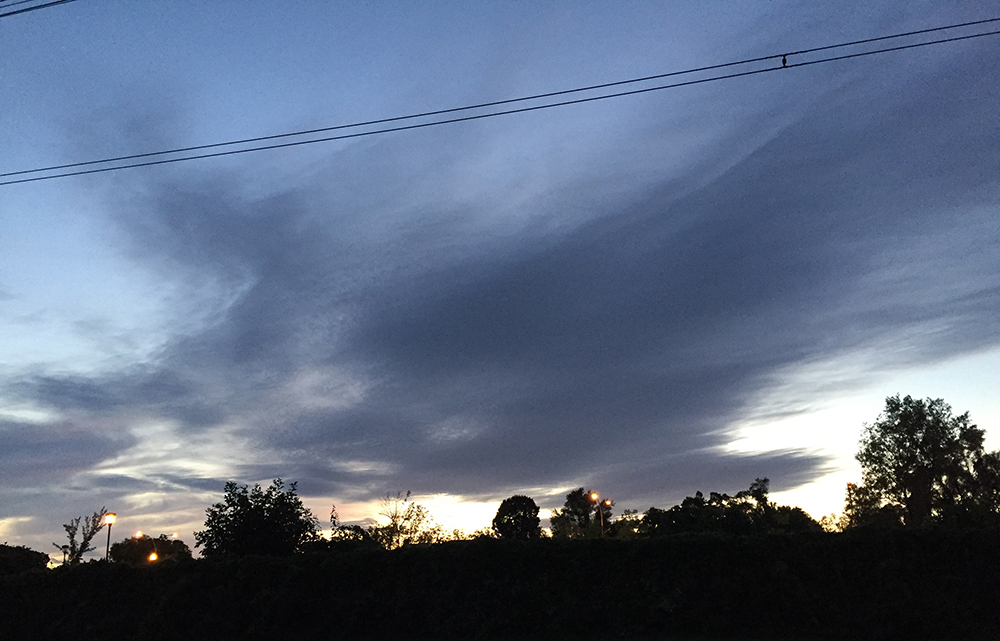
The chaos of all of us
Twilight already, autumn already. When walking with the clock in the sky, the ordering of things seems normal to us without being disturbing or pacifying. I was coming out of my singing class, I looked at the sun, which was already only a glow on a throbbing cloud, perhaps a harbinger of rain.
The singing lesson, as usual, was revealing. It transforms me, patiently sculpts my voice or passions. This time when twilight caught me, my teacher had wanted me to express myself to a Tchaikovsky melody. "I’m picking up the piano to push you further." I had understood his intention and tried, as best I could, to be that tormented soul of the scorned lover that the composer had so simply and powerfully carved.
But now, at fifty-seven years of age, I find it difficult to live this type of romantic and biblical passion. I can understand that the soul complains, I can also very well accept the reasons that drive Job to defy God. After all, disorder scares us. However, my misunderstanding is probably elsewhere. I don’t know.
Before I drifted towards singing, my project in writing today was more to talk about chaos. I may have drifted, but I did it wisely. I watched a BBC documentary, The Code, presented by mathematician Marcus du Sautoy.
> The series reveals a hidden numerical code that underpins all nature. The series consists of three episodes, which explore how the world around us conforms to and can be explained by mathematical codes. The first episode "Numbers" reveals how significant numbers appear throughout the natural world. The second episode "Shapes" uncovers the hidden patterns that explain the shape of the world around us. And the third and final episode "Prediction" looks at the weird world of what happens next.
>
> ([Source](http://www.infocobuild.com/books-and-films/science/the-code-bbc.html))
Just like this teacher with a French name and yet very British, I have always been fascinated by geometry and mathematics. I am not a scientist for two cents and that is one reason why I remain attached to a form of astrology that more sensible brains will reject.
The second episode of this series is particularly interesting. Why are the cells of bees hexagons? Why does salt form cubes? Why are the dunes governed by the PI number? Why do bubbles join so easily together through flat walls?
I am all the more fond of these answers because my own life is a more or less persistent form of chaos. This chaos is described in the third episode. How to find a serial killer by the mathematics of the locations of his crimes alone? How does a crowd manage to guess with an accuracy of 1% the quantities of jujubes in a jar?
We, the small atoms of a chaotic existence, participate in the metamorphosis of time. I like to think of human relations in the same way. Two people touch each other, they will look for the most economical anchor point, a common wall. If they have to widen the circle, they will adopt a different strategy, a different geometry. Sometimes the result is well-constructed and stable cells, sometimes the crowd becomes too dense and our destiny escapes us entirely, our intelligence having become nothing more than a relaying and passive synapse.
I keep walking, watching the construction of the world. My existence is not a straight line, it is governed by the butterfly effect of my gestures and your gestures, the weather, the paths, mathematically natural and well thought out equations.
When I arrived near the metro, my eyes lingered on the illuminated tennis court at the beginning of this cool evening. Subjugated by the beauty of the place, I took out my phone to capture the peaceful symmetry of the moment.
I will continue to walk because I hunger for order in my prayerful life.


